
Google releases mobility data to show how Canadians have changed their movements
Google is keeping a tab on the movements of some Canadians and it's just released data that shows how things have changed since the COVID-19 pandemic that's sent us all indoors.
Google's March 29 Mobility Report on Canada collected data from anonymous users who had enabled Location History for their Google Accounts and compared it to a baseline value of data generated during the 5-week period of January 3 to February 6, 2020.
It looks at all 10 provinces and 3 territories and breaks it down into six categories, including retail and recreation, grocery and pharmacy, parks, transit stations, workplaces and residential, showing data spanning from February 16 to March 29.
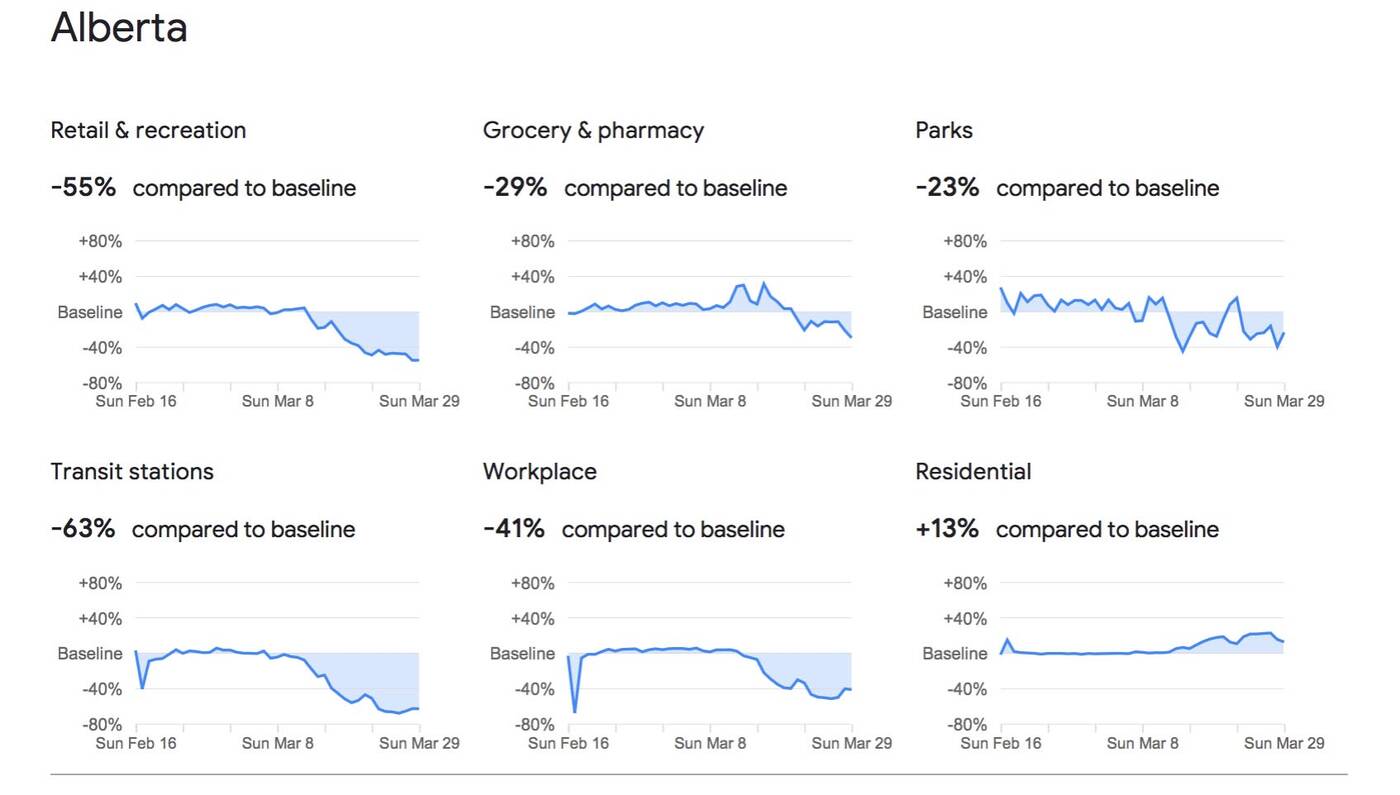 Stats from Alberta, like nearly every region, show a spike in grocery and pharmacy trips as people were told to prepare for a pandemic and possibly the worst case scenario, followed by a gradual decline in the subsequent weeks.
Stats from Alberta, like nearly every region, show a spike in grocery and pharmacy trips as people were told to prepare for a pandemic and possibly the worst case scenario, followed by a gradual decline in the subsequent weeks.
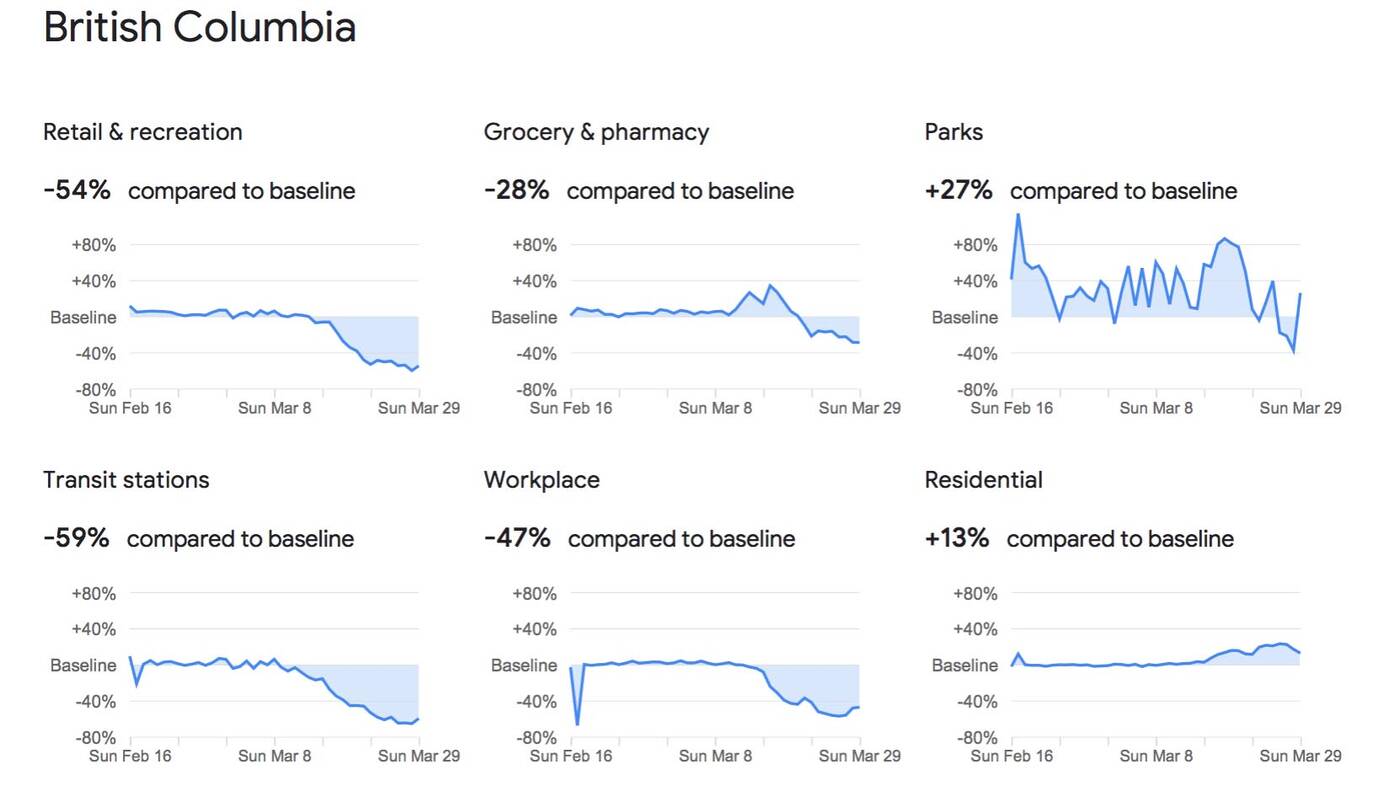 It looks like folks in British Columbia aren't quite ready to give up the majestic landscape that makes up the province because the parks chart shows sizeable spikes and drops over a two week period.
It looks like folks in British Columbia aren't quite ready to give up the majestic landscape that makes up the province because the parks chart shows sizeable spikes and drops over a two week period.
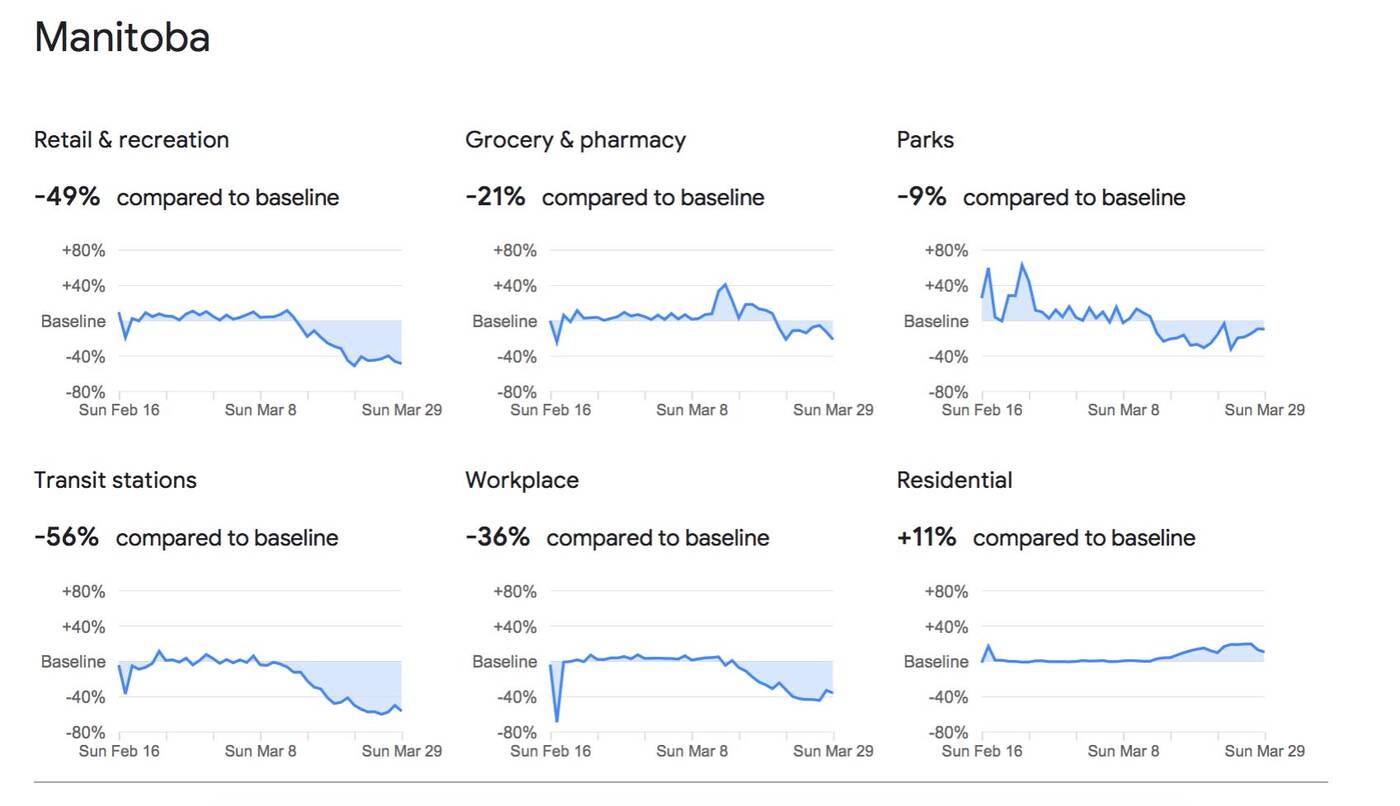 Manitoba, on the other hand, has better managed to keep its population inside.
Manitoba, on the other hand, has better managed to keep its population inside.
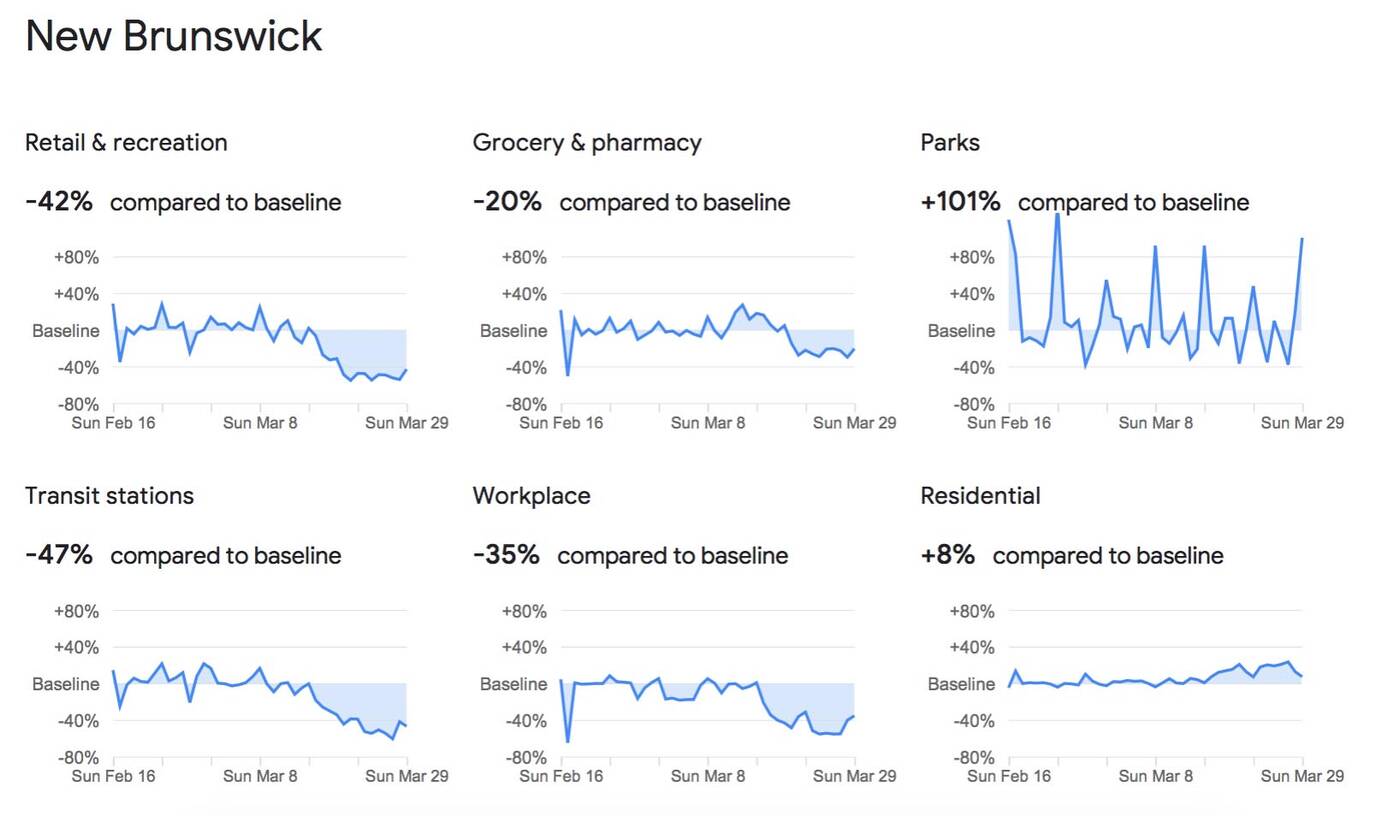 New Brunswick, it seems, just doesn't want to stay in and saw the highest rate of people venturing out to parks. Canadian health officials have made it clear that people are allowed to go outside for exercise, provided they maintain a two-metre distance from others.
New Brunswick, it seems, just doesn't want to stay in and saw the highest rate of people venturing out to parks. Canadian health officials have made it clear that people are allowed to go outside for exercise, provided they maintain a two-metre distance from others.
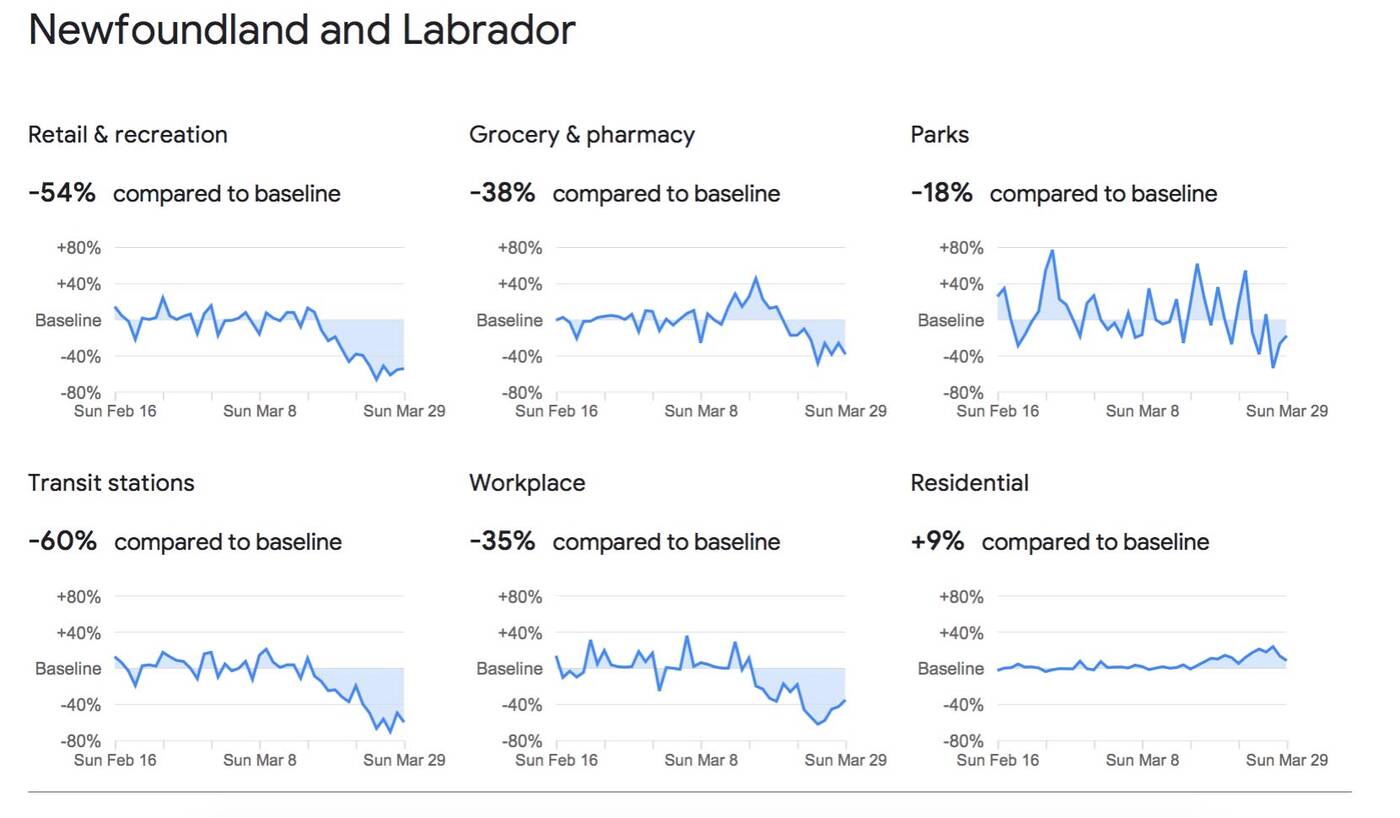 After a bumpy start, it looks like the people of Newfoundland and Labrador are staying in a bit more.
After a bumpy start, it looks like the people of Newfoundland and Labrador are staying in a bit more.
 The Northwest Territories is one of the places where there was not enough data for each category, but it appears that the downward trend in retail and recreation trips is consistent with the rest of the country as many non-essential businesses like movie theatres, shopping malls, restaurants, libraries and museums remain closed.
The Northwest Territories is one of the places where there was not enough data for each category, but it appears that the downward trend in retail and recreation trips is consistent with the rest of the country as many non-essential businesses like movie theatres, shopping malls, restaurants, libraries and museums remain closed.
 A 95 per cent increase for one small province to be visiting the park is a lot. It seems that Premier Stephen McNeil has noticed it's an issue, too, and told everyone today to "stay the blazes home."
A 95 per cent increase for one small province to be visiting the park is a lot. It seems that Premier Stephen McNeil has noticed it's an issue, too, and told everyone today to "stay the blazes home."
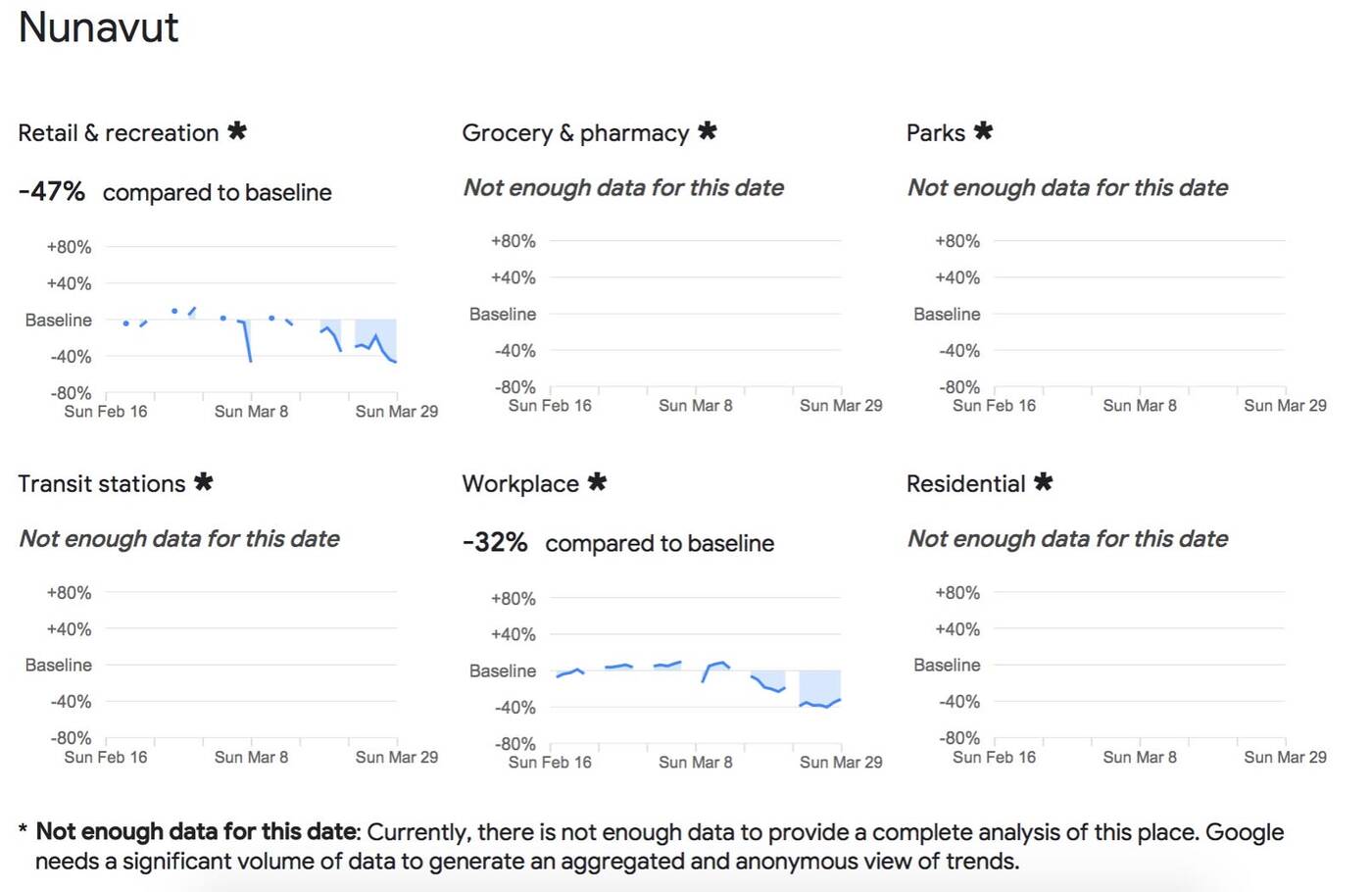 Similar to the Northwest Territories, the most data available for Nunavut shows that retail and recreation trips are down and more people are working from home.
Similar to the Northwest Territories, the most data available for Nunavut shows that retail and recreation trips are down and more people are working from home.
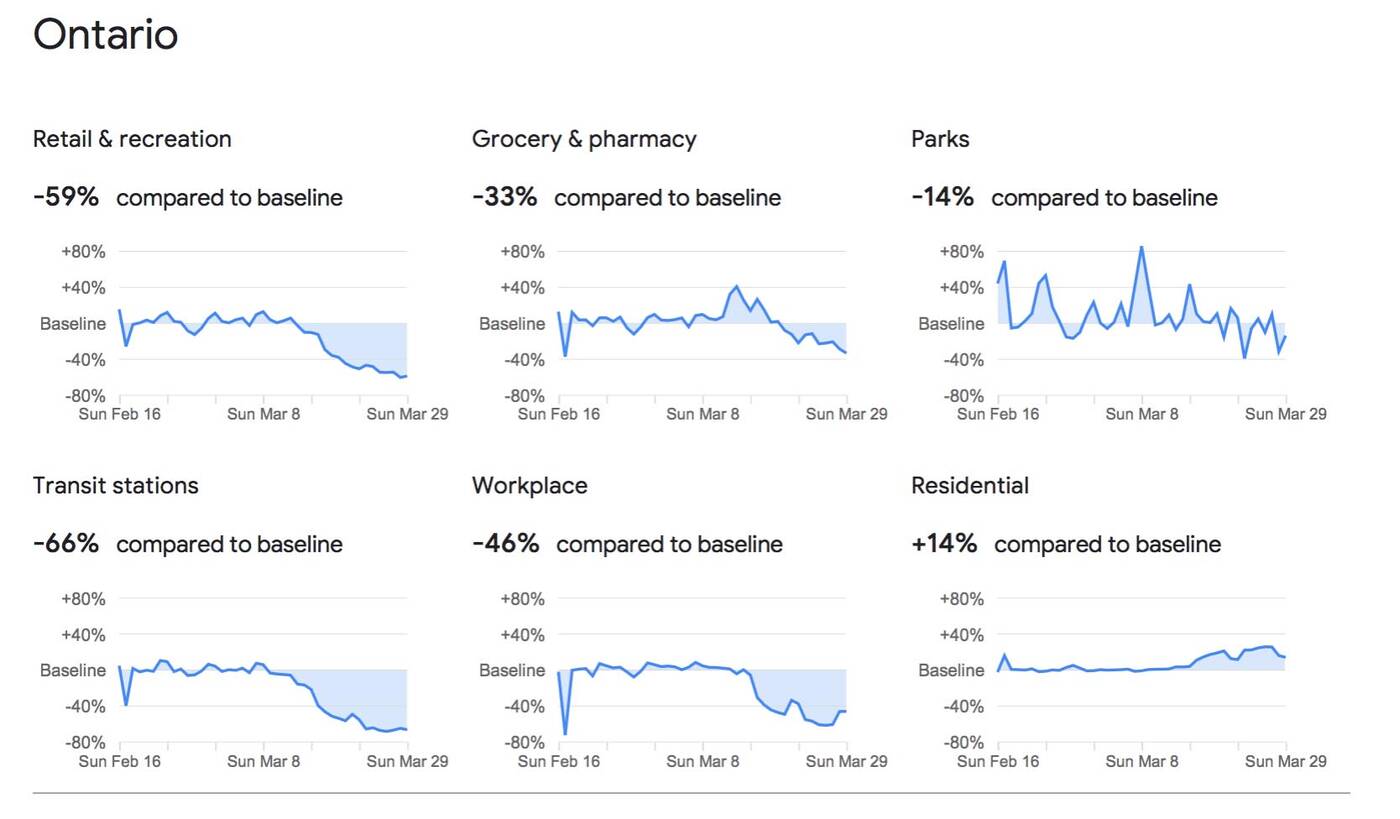 Ontario, for the most part, seems to have complied with the stay-at home order, but places like Toronto are still having to implement strict measures to enforce social distancing.
Ontario, for the most part, seems to have complied with the stay-at home order, but places like Toronto are still having to implement strict measures to enforce social distancing.
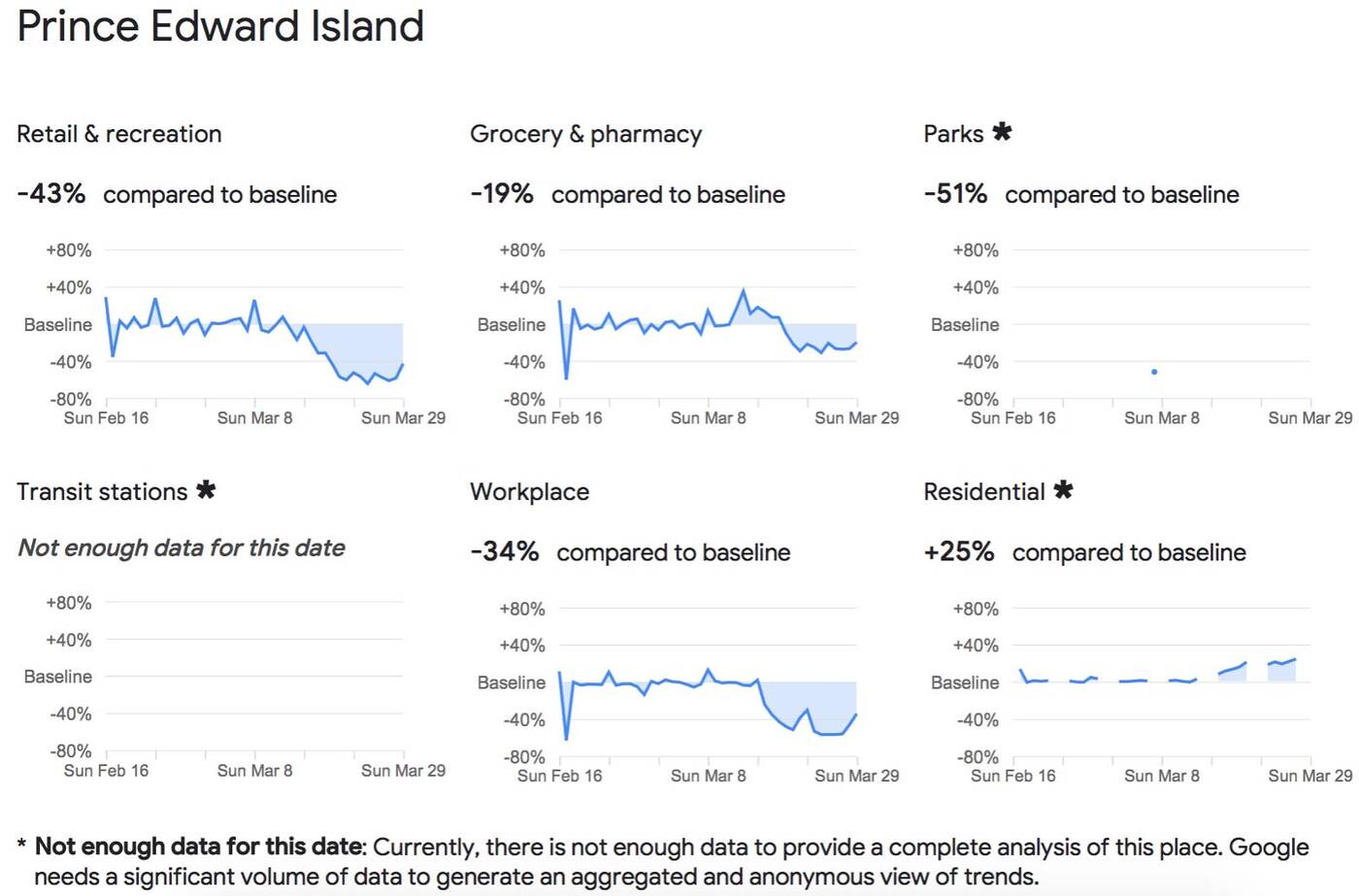 A few categories are missing for Prince Edward Island but the rest are on trend with the other provinces.
A few categories are missing for Prince Edward Island but the rest are on trend with the other provinces.
 The same goes for Quebec, which has seen a downward trend in each category except residential over the past several weeks.
The same goes for Quebec, which has seen a downward trend in each category except residential over the past several weeks.
 Apparently people in Saskatchewan are having a hard time staying inside with an upward trend of folks visiting parks.
Apparently people in Saskatchewan are having a hard time staying inside with an upward trend of folks visiting parks.
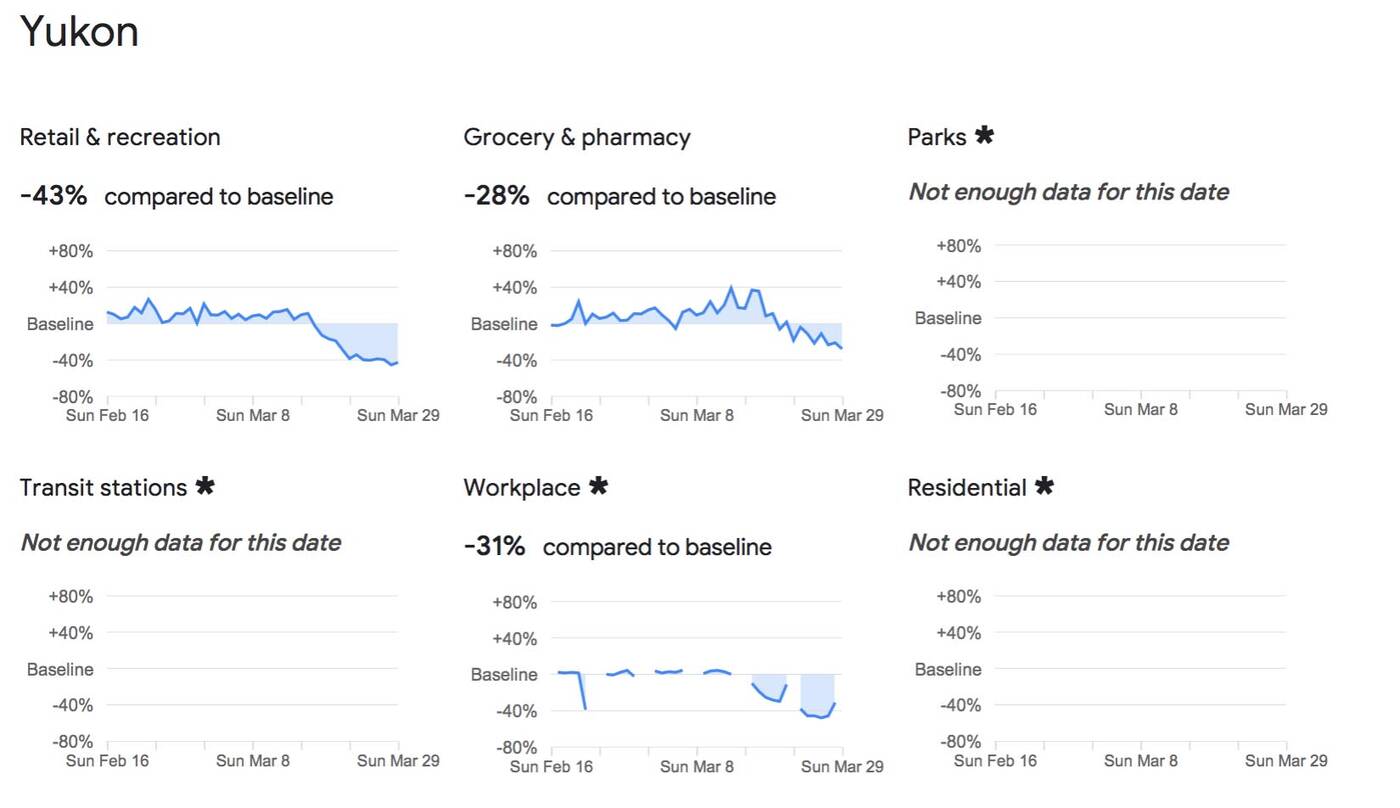 With the little data available, it looks like the Yukon has experienced the same trends as the rest of Canada.
With the little data available, it looks like the Yukon has experienced the same trends as the rest of Canada.
Except for British Columbia, New Brunswick, Nova Scotia and Saskatchewan, most of the country has largely been complying with advice from health officials to only leave the house when absolutely necessary.
The largest drop in the transit stations category occurred in Ontario and Quebec, where the Société de transport de Montréal (STM) and Toronto Transit Commission (TTC) have experienced huge declines in ridership.
After some initial panic illustrated in the grocery and pharmacy numbers, Canadians were assured that the supply chain for food and life essentials was steady, leading the data to drop while folks either had what they needed, shopped less frequently, or began ordering online.
Ontario chose to release projection data today showing how the virus could continue to spread if the precautions in place aren't taken seriously.
The federal government also predicts that the virus could last up to two years.
It will be interesting to see how behaviours among provinces shift in the coming weeks given the new information.
Latest Videos
Join the conversation Load comments







